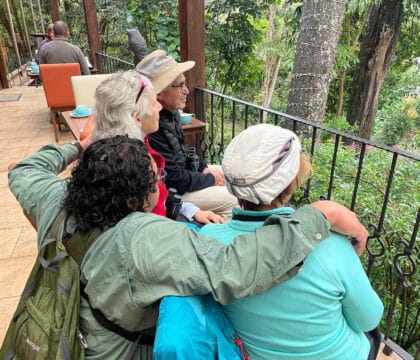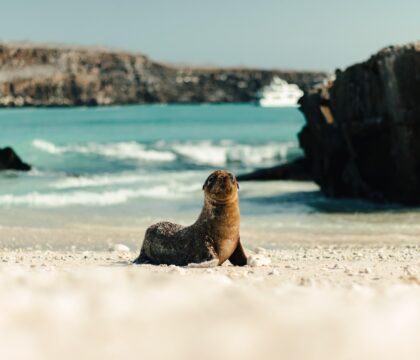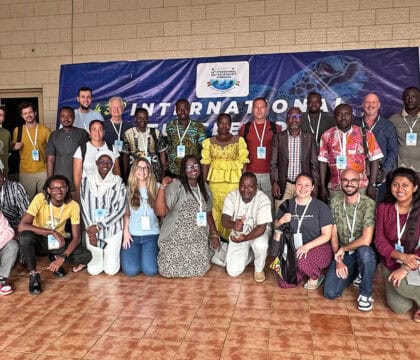January 8, 2013 • News Announcements, Program Updates
Midst my daily research schedule of interviews and meetings, I spend most of the time in Armila just trying to be a good guest. These efforts range from teaching English lessons on weekends to simply greeting people when I pass by (I’ve had to cut back on the latter, which resulted in greeting marathons with the 200+ local children).
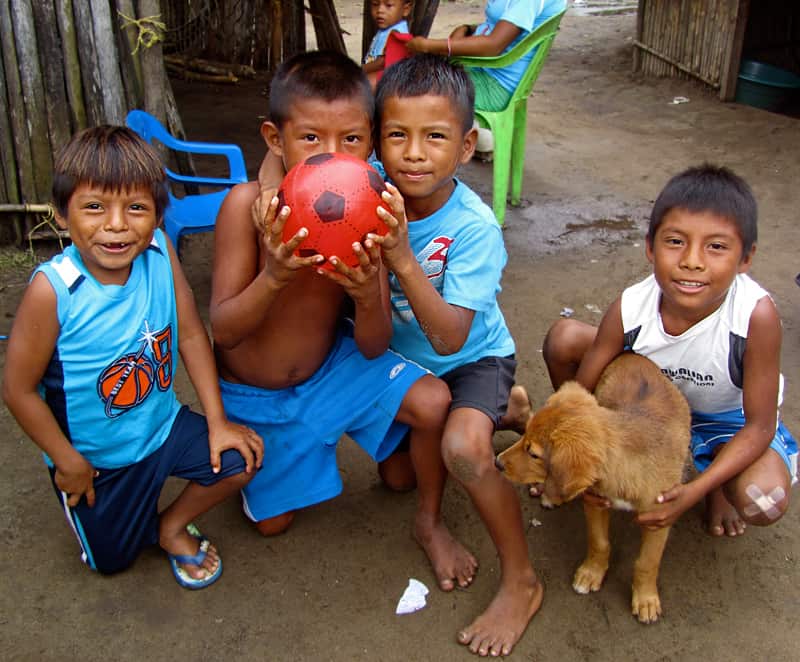
Local children in Armila. © Amanda Gibson
I also help my host family cook. Because I prep a wide variety of dishes back home, from my grandmother’s Maryland crab cakes to Thai coconut chicken, I thought I could be useful in a Guna kitchen. Back home, however, we don’t peel plantains with four deft slices of a machete. So, the American’s job in the cookhouse became the less dangerous (though slightly more monotonous) job of grating coconut.
The Guna cookhouse, typically separate from the main house, is very much women’s domain—the “province of women” (Margiotti 2010). Here women boil, cut, peel, fry, and smoke food for hungry family members.
Conservation, on the other hand, attracts few female participants in Armila.
All nine members of the local Commission for the Conservation of Sea Turtles are men. Most were invited to join the commission because of their importance in the traditionally male-dominated political sphere.
But it is difficult to discuss community projects and conservation efforts when an important voice, representing the majority of the town’s population, is noticeably absent.
In their arena, local female leaders are movers and shakers. Four women’s commissions organize the entire female labor force. They clean the community on a weekly basis, run fundraisers, and take on the massive beach clean-ups that are so important to nesting turtles.
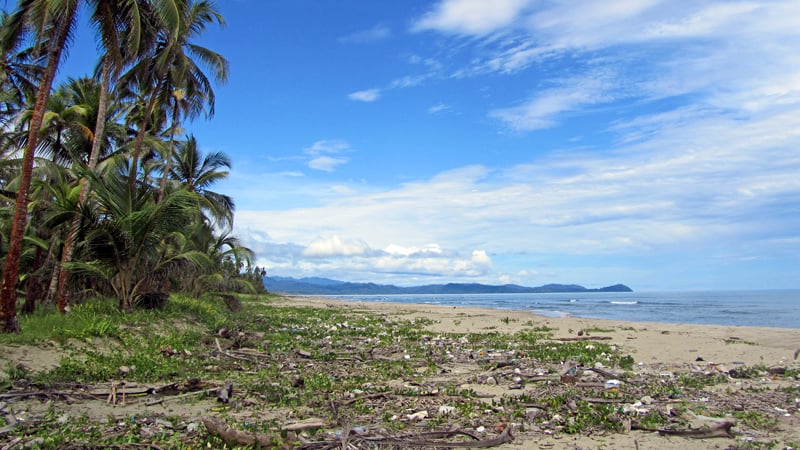
Plastic debris collects on the beach. © Amanda Gibson
Community participants at the ARAP meeting. © Amanda GibsonAlthough gender strictly divides labor in Armila, women both organize projects and are respected for their work. Can conservation become a gender-neutral zone in which women feel comfortable participating?
When government workers from the Panamanian Authority of Aquatic Resources (ARAP) came to scope out Armila as a potential Special Reserve Zone, we ran from house to house inviting women educators, student leaders, athletes, and commission chairs to join a round table discussion.
Fifteen male and eight female community representatives packed the classroom the morning of the round table. Dressed in traditional molaattire, participants discussed the potential impacts of reserve status and tilapia cultivation on their town. The conversation even continued into the night with a community debate in the Onmaked Nega, or great house.
Local leaders of both genders decided they wanted to pursue the status of a Special Reserve Zone for their town. While this is an important step for the community, sea turtles still depend on long-term allies in Armila’s female population. Women, with their dominion over the kitchen, decide whether turtle eggs and meat are part of the menu. They also determine whether household trash gets buried, burned, or thrown on the turtles’ beach. While women’s participation in the ARAP visit is a victory worth celebrating, we’ll continue to work until their participation becomes a regular occurrence, not a special event.

